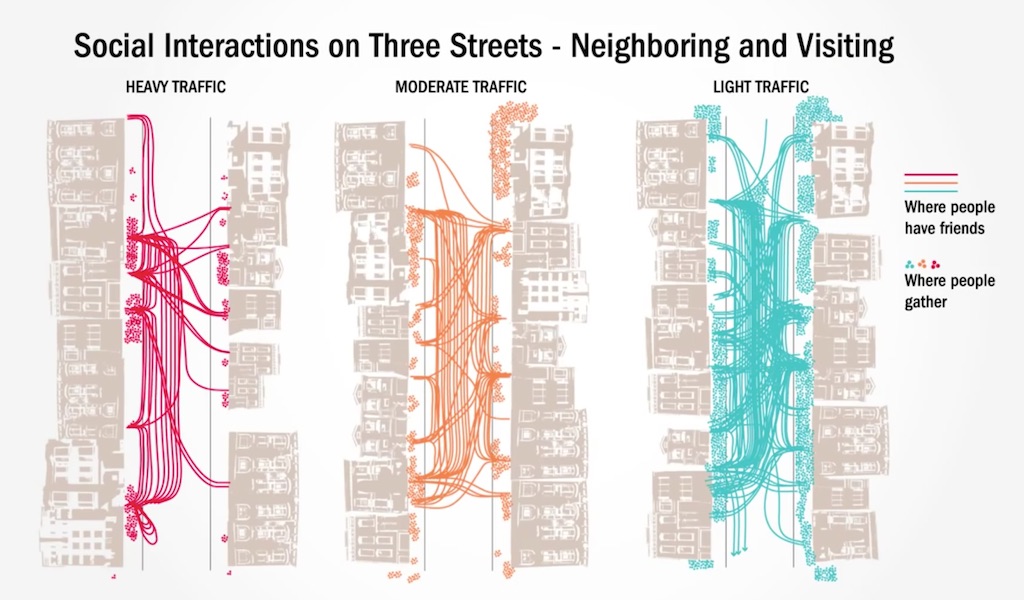The City of Yarra has adopted a Road Safety Study Policy which refuses to consider modal filters as a possible treatment, based on the claim that they have “not been supported by the community (as a whole)”.

That is the wrong approach. Instead, council should state that:
- high volumes of traffic reduce the liveability of local streets,
- high volumes of vehicles on local streets is an issue for the majority of the community,
- modal filters (or road closures) are the most effective solution, and
- lack of support from a minority is not an adequate reason to define them as out of scope.
Heavy traffic reduces liveability
Donald Appleyard’s seminal ‘Livable Streets‘ research in the 1960’s and 1970’s showed that liveability improves significantly when traffic flow is reduced.
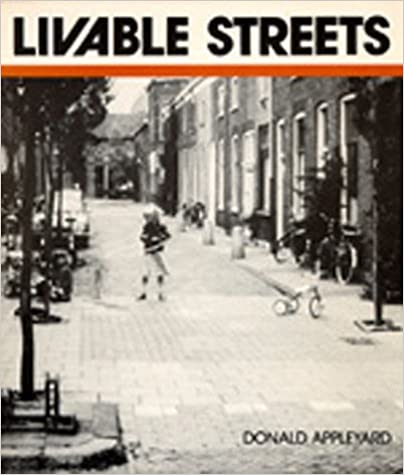
Low Traffic Neighbourhoods have majority support
Low Traffic Neighbourhoods, which by definition include road closures and modal filters, have widespread majority support, while opposition is from a noisy minority.
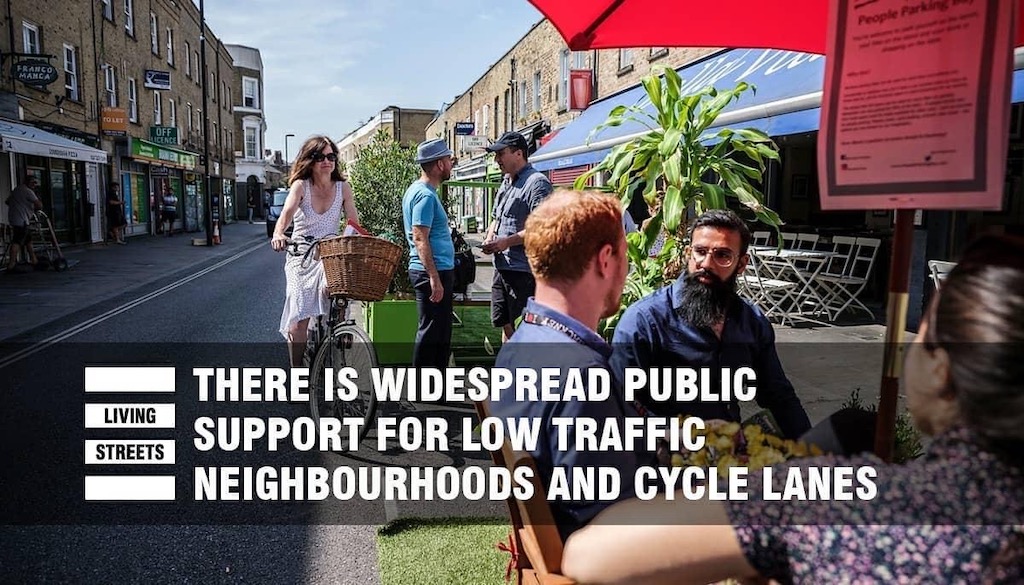
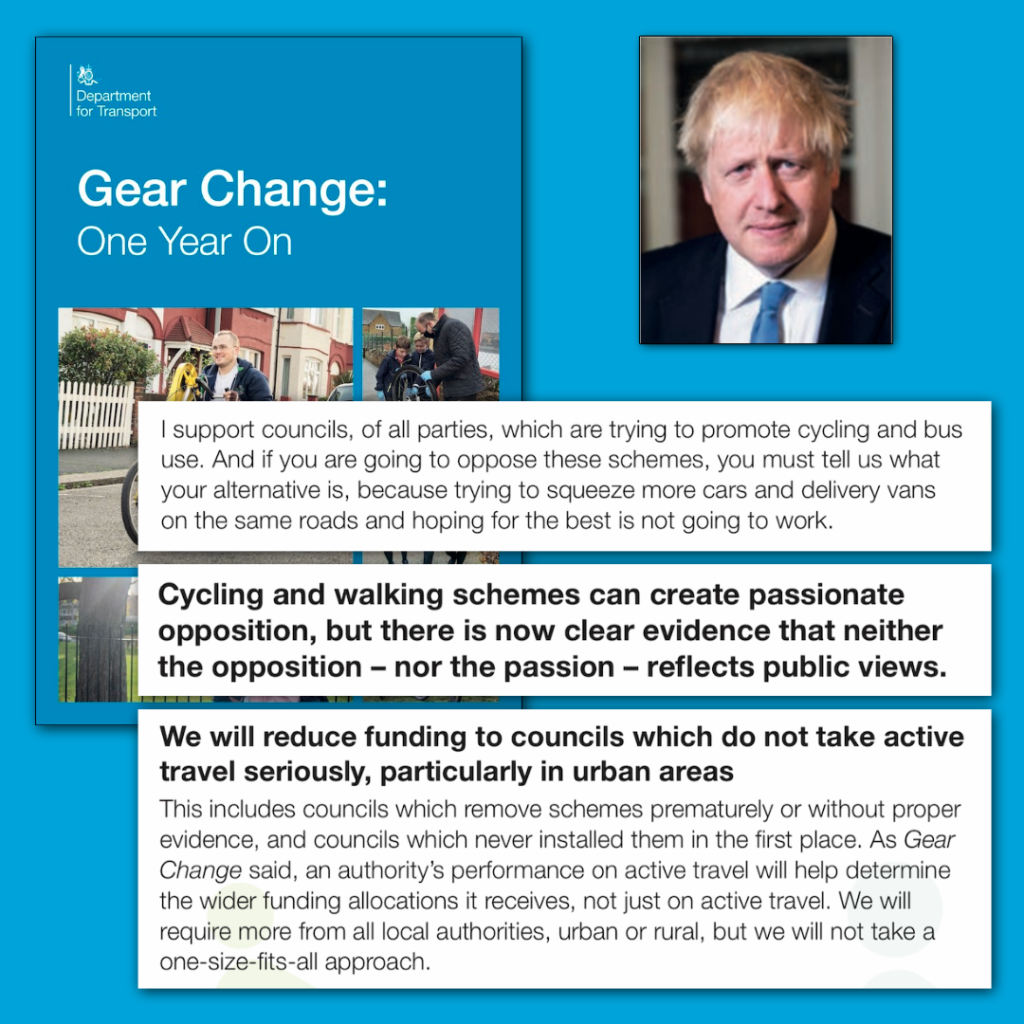
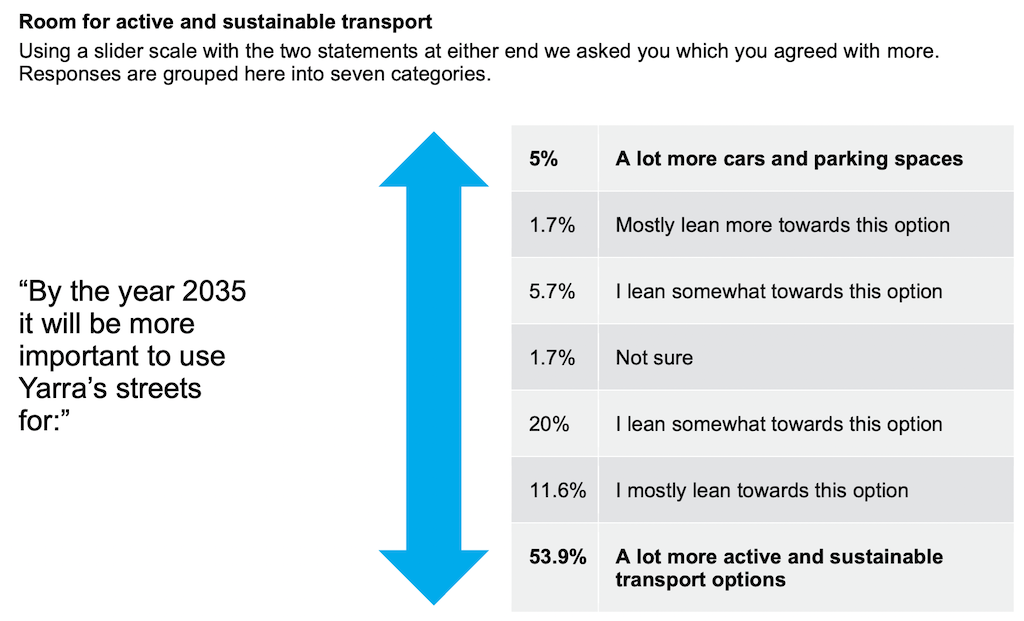
Road closures are the most effective solution
The Road Safety Study Policy identified approximately 30 types of treatments, and only 4 of the 30 were classed as being effective (or ‘good’) at reducing traffic volumes. These were:
- Full road closure
- Partial road closure
- Modified intersection
- One way street
In addition, council has been aware since at least 2016 that reducing traffic volumes is key to improving safety.
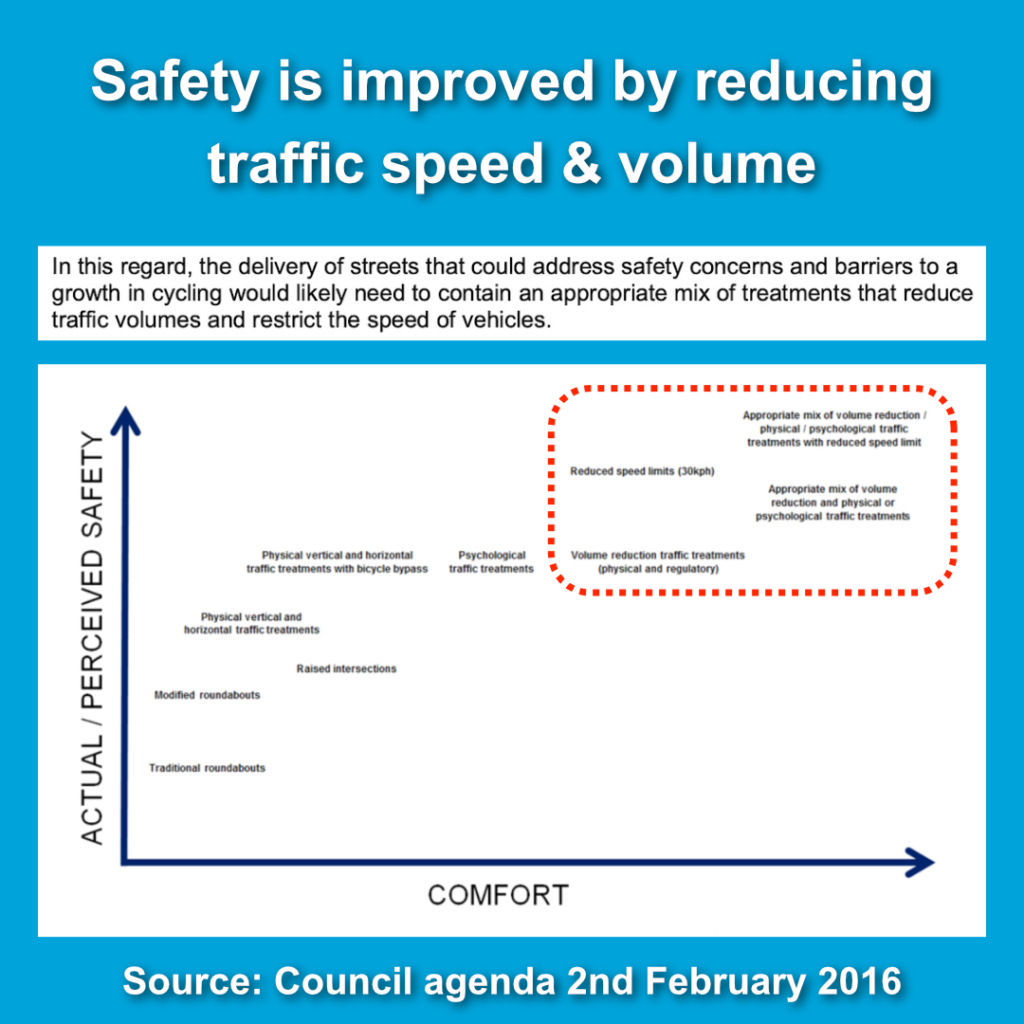
Good governance can proceed with majority support
Good governance, or proceeding with reforms that are ethical, and socially just, can proceed with majority support, without reference to poorly defined terms such as “the community (as a whole)”. Consider these examples:
- In the early 1900s in Australia, the majority of the community determined that women should have the right to vote, despite not having the support of “the community (as a whole)”.
- In 1970s, 1980s, and 1990s in the Netherlands, road closures proceeded with the support of the majority, despite not having the support of “the community (as a whole)”.
- In 2017 in Australia, the majority of the community determined to allow same-sex marriage, despite not having the support of “the community (as a whole)”.
- In 2017, the Victorian Parliament passed the Voluntary Assisted Dying Act, despite not having the support of “the community (as a whole)”.
- In 2021, in cities around the world, including London and Paris, road closures within Low Traffic Neighbourhoods are proceeding with the support of the majority, despite not having the support of “the community (as a whole)”.
Conclusion
The City of Yarra is wrong to refuse to consider road closures because they have “not been supported by the community (as a whole)”. Instead council should state that:
- high volumes of traffic reduce the liveability of local streets,
- high volumes of vehicles on local streets is an issue for the majority of the community,
- modal filters (or road closures) are the most effective solution, and
- lack of support from a minority is not an adequate reason to define them as out of scope.

Published 18th October 2022

